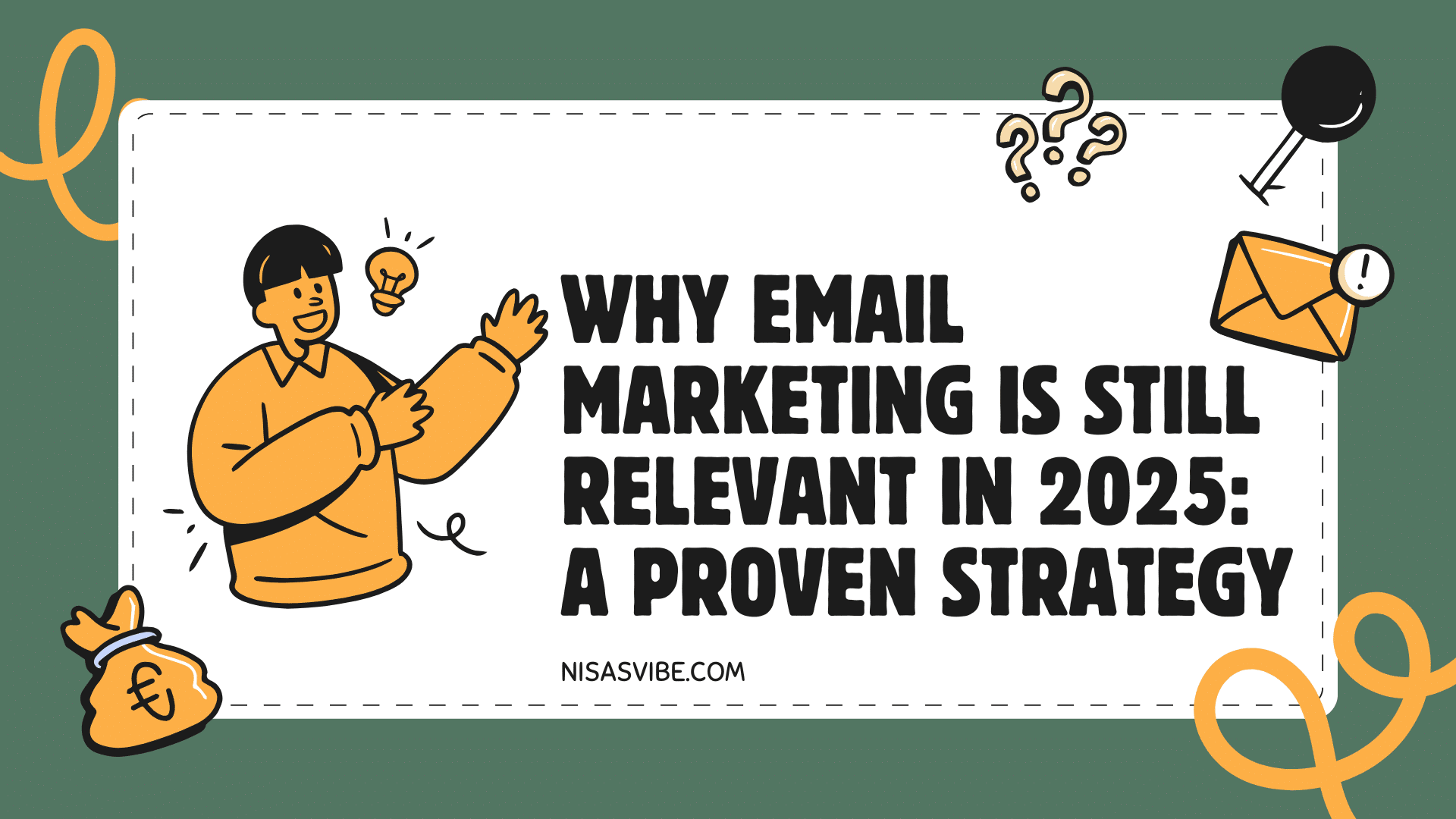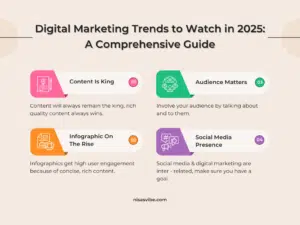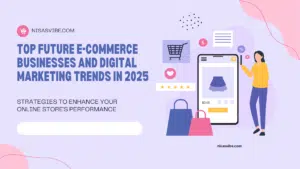Hi, I’m Nisa! As a digital marketer, I’ve seen firsthand how powerful email marketing can be for building strong customer relationships, driving sales, and promoting brand loyalty. While newer marketing trends like social media and influencer marketing continue to dominate the digital space, email marketing remains one of the most effective and reliable channels for businesses in 2025. In this article, I’ll explain why email marketing is still relevant in 2025 and how you can use it to grow your business with a proven strategy.
1. High ROI: The Best Bang for Your Buck
One of the main reasons email marketing remains relevant in 2025 is its incredible ROI. Studies consistently show that email marketing delivers some of the highest returns on investment compared to other marketing channels. According to recent data, businesses can expect an average ROI of $42 for every $1 spent on email marketing. This makes it an extremely cost-effective way to engage customers, boost conversions, and drive revenue.
Why it matters:
- Low cost: Email marketing doesn’t require a huge budget, making it accessible for small businesses and startups.
- High returns: Because it targets a highly engaged audience, email marketing leads to more conversions at a lower cost per acquisition.
- Long-term value: Once you’ve built your email list, it becomes a valuable asset for your business, enabling continuous engagement and repeat sales.
How to leverage this strategy:
- Use email automation tools like Mailchimp or ConvertKit to send targeted messages based on user behavior.
- Segment your email list to send personalized messages that are relevant to each recipient, improving engagement and conversion rates.
2. Direct Access to Your Audience
Unlike social media or paid advertising, email marketing provides direct access to your audience’s inbox. When someone subscribes to your email list, they’ve opted in to receive communication from you, making it a more personalized and targeted marketing channel. This access allows you to send relevant messages at the right time and nurture customer relationships more effectively.
Why it matters:
- Owned channel: Unlike social media platforms, which rely on algorithms, email marketing gives you control over your communication with customers.
- Personalization: You can send tailored messages based on customer preferences, behavior, and past interactions, which increases the likelihood of conversions.
- Higher engagement: Emails are delivered directly to the recipient, and with proper segmentation, you can achieve much higher open and click-through rates.
How to leverage this strategy:
- Use segmentation to personalize your emails based on customer behavior, interests, and demographics.
- Offer exclusive content, discounts, or promotions to encourage subscribers to engage with your emails.
3. Builds Strong Customer Relationships
Building and maintaining relationships with customers is critical for long-term business success. Email marketing plays a key role in this by providing a direct, personal communication channel with your audience. Whether you’re sending them product updates, educational content, or promotional offers, email helps keep your brand top-of-mind for customers.
Why it matters:
- Consistent communication: Regular email campaigns allow you to stay in touch with customers and continue providing value long after the initial purchase.
- Customer loyalty: By delivering relevant, timely content, you can foster customer loyalty and increase the likelihood of repeat business.
- Trust-building: When customers see your business offering valuable insights or personalized deals, they’re more likely to trust your brand and become advocates.
How to leverage this strategy:
- Send regular newsletters that offer helpful tips, updates, and content your audience will find valuable.
- Use email drip campaigns to nurture leads and guide them through the buying process, turning prospects into customers.
4. Increased Mobile Usage
In 2025, mobile email usage continues to rise, with a significant percentage of emails being opened and read on mobile devices. According to recent studies, over 50% of all email opens now occur on smartphones and tablets. This means your emails must be optimized for mobile viewing to ensure your message is clear and engaging.
Why it matters:
- Mobile-friendly emails are essential for ensuring your content is accessible to users on the go.
- Quick action: With mobile devices, consumers are more likely to engage with your email content immediately, whether it’s making a purchase or signing up for a webinar.
- Responsive design: Creating emails that are optimized for mobile ensures that your message looks great on all screen sizes.
How to leverage this strategy:
- Design responsive email templates that automatically adjust to different screen sizes and devices.
- Keep your email content concise and clear, making it easy for mobile users to read and take action quickly.
5. Measurable and Data-Driven Insights
One of the most powerful aspects of email marketing is its measurability. With the help of analytics tools, businesses can track open rates, click-through rates, conversions, and other key metrics to gauge the effectiveness of their campaigns. This allows marketers to continuously optimize and refine their strategies for better results.
Why it matters:
- Trackable metrics: Unlike traditional advertising, email marketing provides clear metrics on how well your campaigns are performing.
- Data-driven decisions: With access to real-time data, businesses can make informed decisions, tweak campaigns, and improve performance over time.
- A/B testing: Testing subject lines, CTAs, or design elements allows you to understand what works best for your audience and increase your chances of success.
How to leverage this strategy:
- Use A/B testing to experiment with different email formats, subject lines, and offers to see which ones resonate most with your audience.
- Regularly analyze email metrics to identify areas for improvement and fine-tune your approach for maximum impact.
6. Drives Conversions and Sales
Email marketing is one of the best channels for driving conversions and sales. Whether you’re promoting new products, offering limited-time discounts, or launching a seasonal campaign, email provides a direct and effective way to convert leads into paying customers.
Why it matters:
- Targeted offers: Email marketing allows you to send highly targeted, personalized offers to your subscribers based on their behavior, increasing the likelihood of conversion.
- Abandoned cart emails: Recover lost sales by sending timely reminders to customers who have abandoned their shopping carts.
- Upselling and cross-selling: Use email to promote related products or services, increasing your average order value.
How to leverage this strategy:
- Implement abandoned cart emails to remind customers about products they left behind, offering incentives like discounts or free shipping.
- Send exclusive deals to your email subscribers, making them feel special and more likely to take action.
7. Integration with Other Marketing Channels
Email marketing is a powerful standalone channel, but it also integrates seamlessly with other digital marketing strategies like social media, PPC, and content marketing. By combining these strategies, you can create a more cohesive and effective marketing approach.
Why it matters:
- Cross-channel engagement: Encourage subscribers to follow you on social media by promoting your social profiles in your emails.
- Retargeting: Use email data to retarget customers through social media ads or PPC campaigns.
- Content promotion: Share your blog posts, videos, and other valuable content via email to drive traffic back to your website.
How to leverage this strategy:
- Integrate email and social media: Include social media buttons in your emails and encourage your subscribers to engage with you across all platforms.
- Use email data for PPC: Retarget your email subscribers with relevant ads on platforms like Facebook or Google.
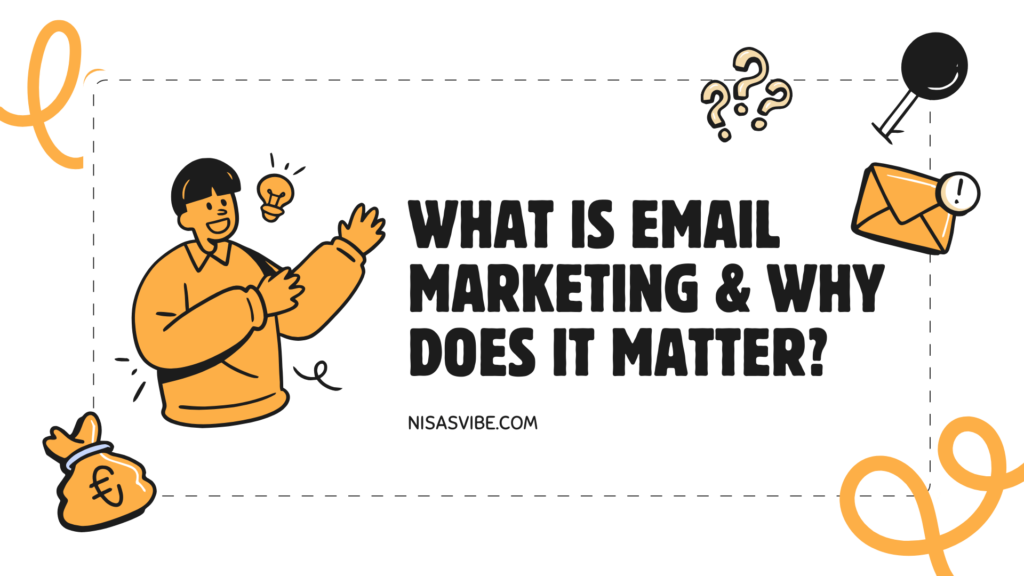
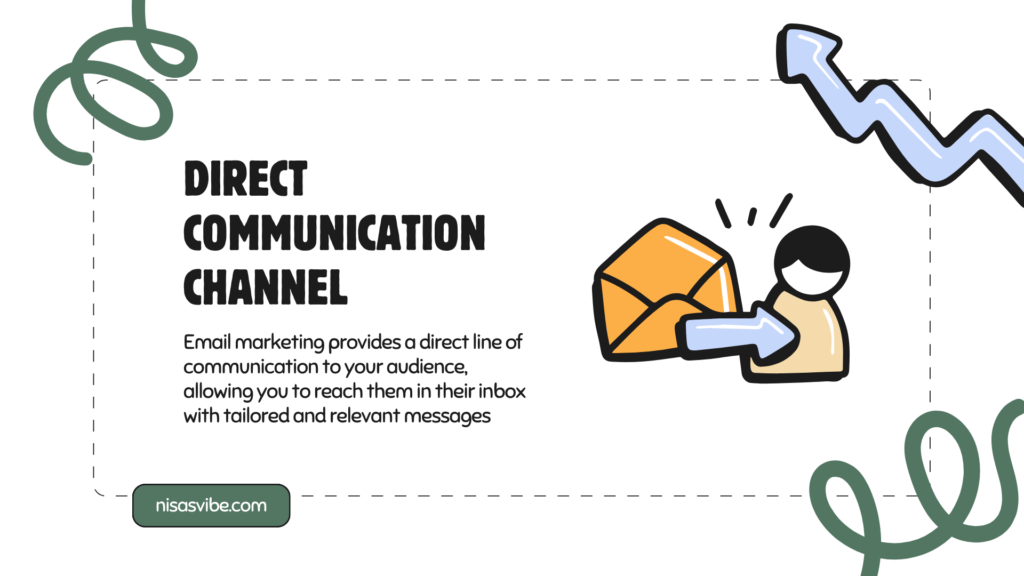
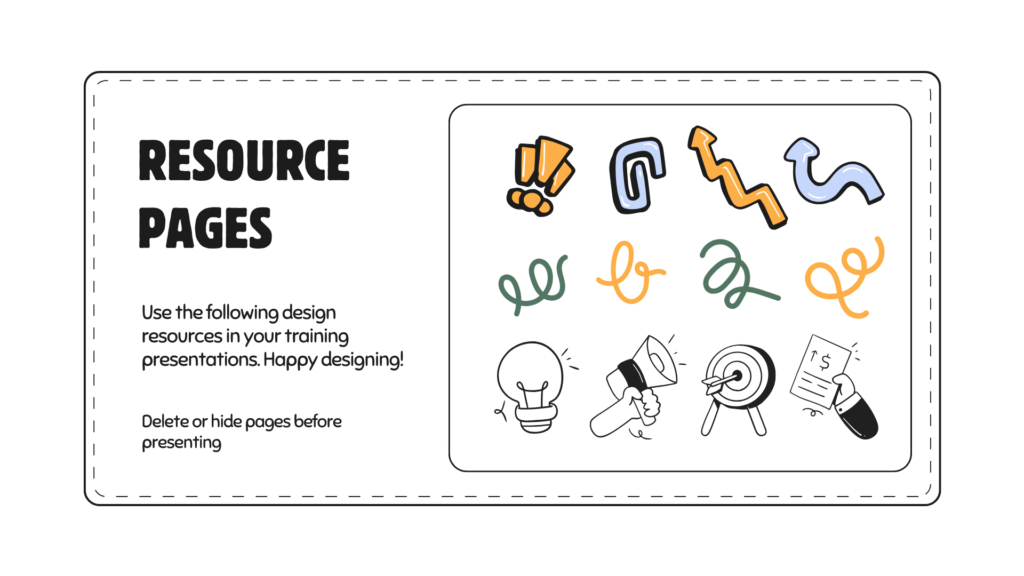
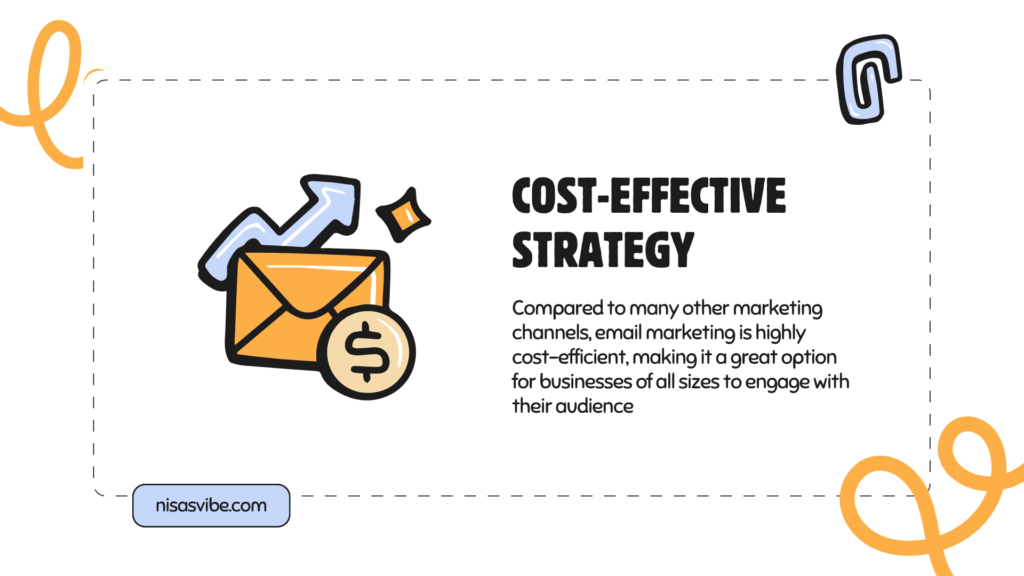
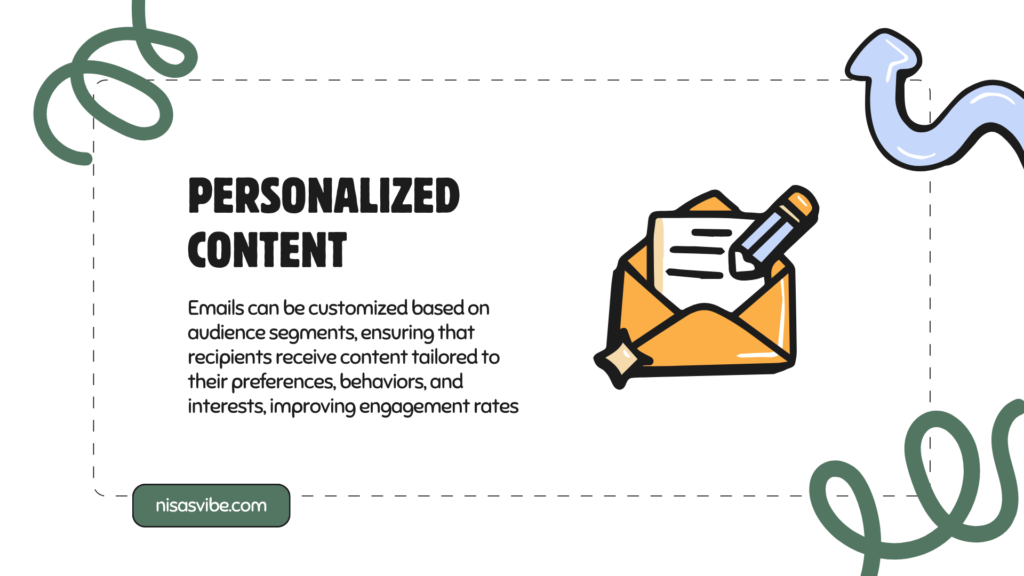
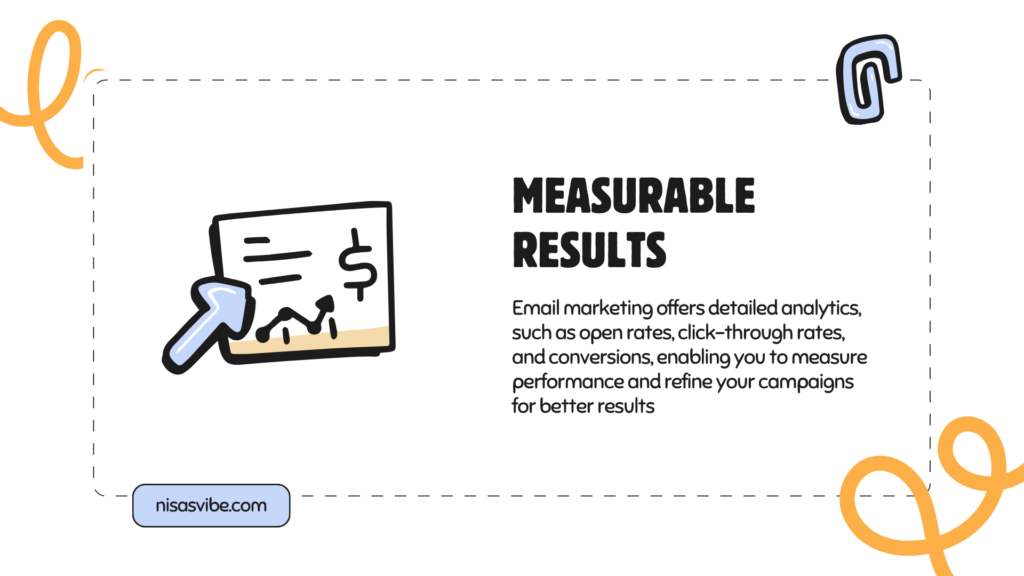
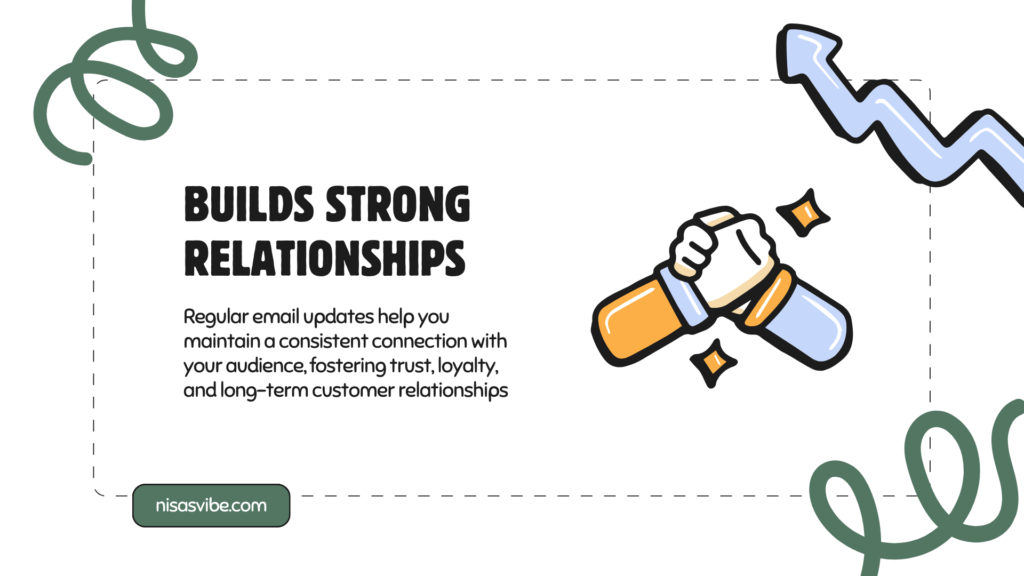

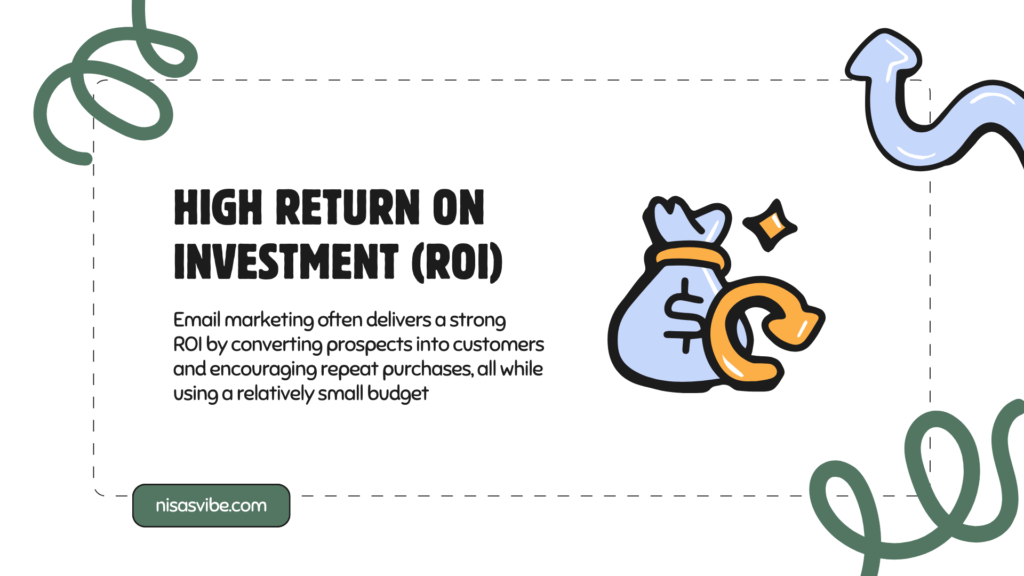
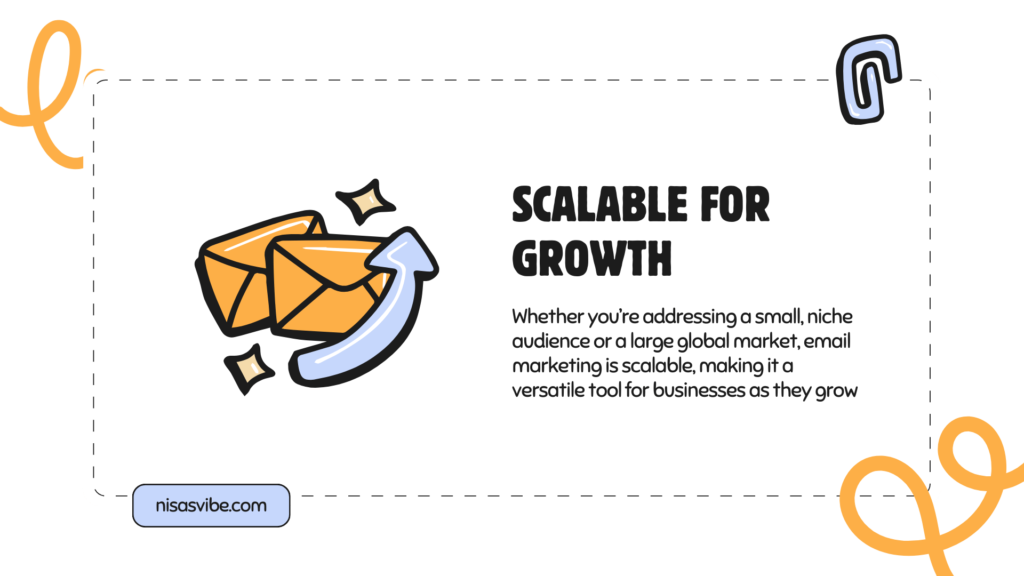

Conclusion: Email Marketing is Still a Proven Strategy in 2025
In 2025, email marketing remains one of the most powerful, cost-effective, and ROI-positive strategies for businesses of all sizes. Whether you’re looking to build stronger customer relationships, increase sales, or promote brand awareness, email marketing continues to offer unparalleled value. By personalizing your campaigns, optimizing for mobile, and leveraging data-driven insights, you can unlock the full potential of email marketing and drive long-term business success.
Email Marketing FAQs
Here are some frequently asked questions about email marketing:
How often should businesses send emails to subscribers?
The frequency of email campaigns depends on the type of business and the preferences of subscribers. Businesses should aim to send enough emails to keep subscribers engaged but not so many that they become overwhelmed or annoyed.
How can businesses grow their email list?
Businesses can grow their email list by offering incentives for subscribers to sign up, such as exclusive discounts or content.
How can businesses improve their open rates and engagement?
Businesses can improve their open rates and engagement by personalizing messages, crafting effective subject lines, and creating engaging content.
Email marketing remains a valuable tool for businesses in 2023. With its high ROI, ability to segment, and measurable results, email marketing is an essential component of any successful digital marketing strategy. By following best practices, avoiding common mistakes, and using the right tools, businesses can create effective email campaigns that drive engagement and conversions.

